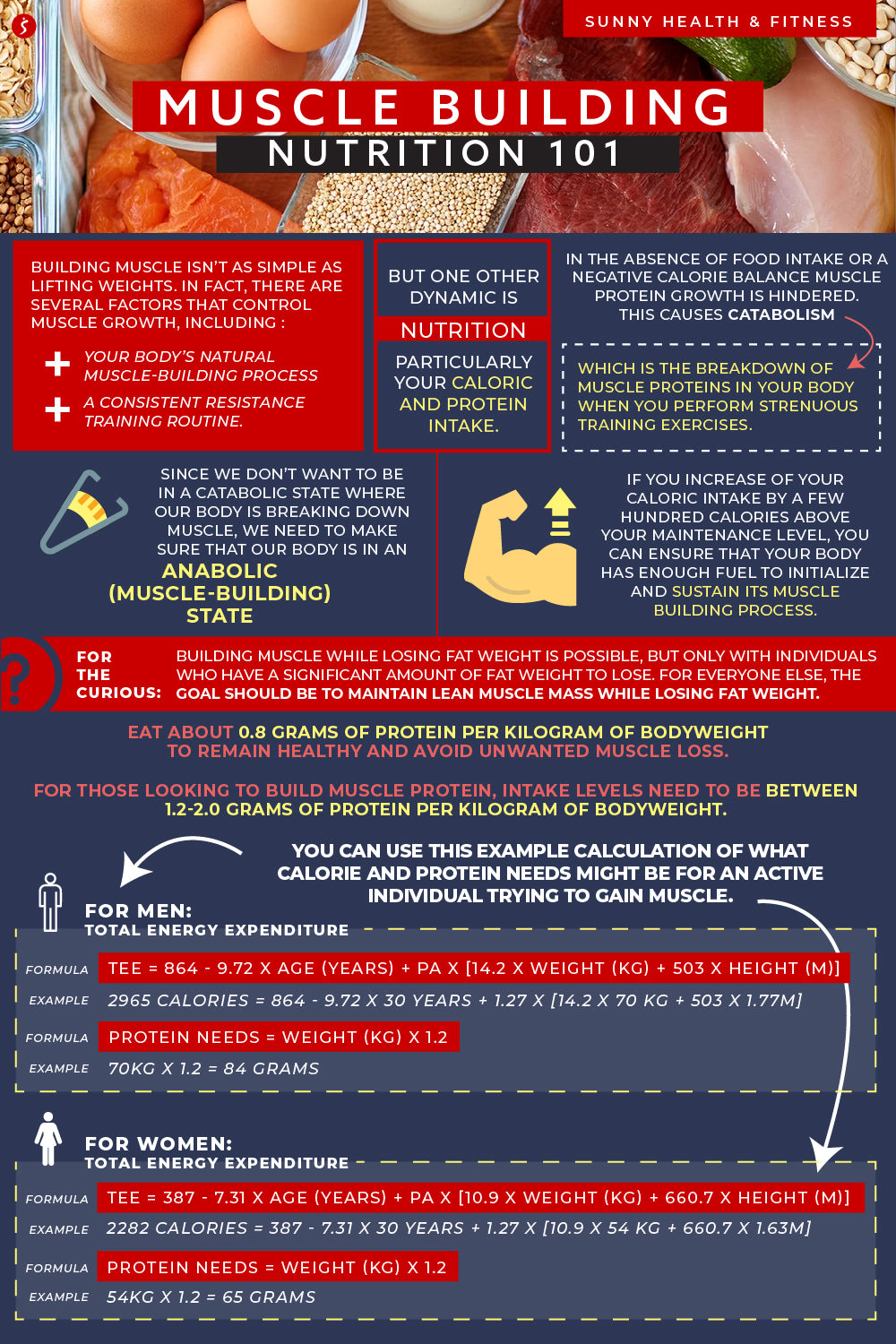Building muscle isn’t as simple as lifting weights. In fact, there are several factors that control muscle growth, including your body’s natural muscle-building process and a consistent resistance training routine. But one other dynamic that can often be overlooked is nutrition, particularly your caloric and protein intake.
Your nutrition can determine the effectiveness of your body’s muscle-building process. In the absence of food intake or a negative calorie balance muscle protein growth is hindered. This causes catabolism, which is the breakdown of muscle proteins in your body when you perform strenuous training exercises. Since we don’t want to be in a catabolic state where our body is breaking down muscle, we need to make sure that our body is in an anabolic (muscle-building) state.
To avoid muscle breakdown, you should determine how much you should be eating to maintain your current bodyweight. If you increase of your caloric intake by a few hundred calories above your maintenance level, you can ensure that your body has enough fuel to initialize and sustain its muscle building process.
(For the curious: building muscle while losing fat weight is possible, but only with individuals who have a significant amount of fat weight to lose. For everyone else, the goal should be to maintain lean muscle mass while losing fat weight.)
Whether you are trying to gain muscle or keep from losing it, specific protein intake levels must be reached to promote muscle growth. When caloric intake is reduced, protein will serve as a full source for the body to function normally, which limits how much protein can be utilized to build muscle.
This “mis-allocation” of protein can be offset by increasing the amount of protein that you eat. So how much protein do we need?
First, everyone needs protein no matter if you exercise or not. Sedentary individuals still need to eat about 0.8 grams of protein per kilogram of bodyweight to remain healthy and avoid unwanted muscle loss. For those looking to build muscle protein, intake levels need to be between 1.2-2.0 grams of protein per kilogram of bodyweight. Below is an example calculation of what calorie and protein needs might be for an active individual trying to gain muscle.
*PA = Physical Activity Level
FOR MEN: TOTAL ENERGY EXPENDITURE

Protein Needs = Weight (kg) x 1.2
70kg x 1.2 = 84 grams
FOR WOMEN: TOTAL ENERGY EXPENDITURE

Protein Needs = Weight (kg) x 1.2
54kg x 1.2 = 65 grams
Caloric intake and protein intake can significantly influence your body’s muscle building. If caloric intake and protein intake are too low, your body will be in a catabolic state and muscle loss will occcur—even if you are performing resistance training activities. To ensure that your muscle-building process is stimulated, you must increase your calories and protein to sufficient levels for protein synthesis to occur.

























Add Your Name & Email
Please enter your name and email to continue.We won’t display your email publicly.
1 comment
Thank you for this information! I definitely am not getting enough protein and will be reevaluating my diet.